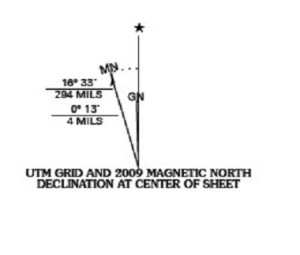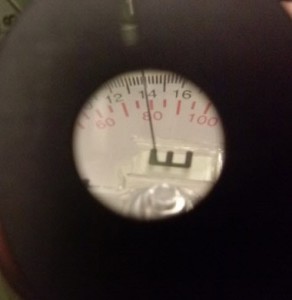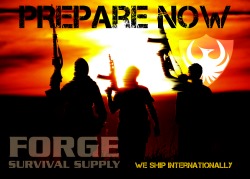 One thing I’ve noticed in the past is that every time I’ve really needed technology the most is when it let me down. I was thinking about this the other night after my cell phone shut itself down never to start again. I happened to be on call that night for work and in order to dial into the company network I need to have security software that ran on my phone. No phone, no network. It got me thinking about the other times I’ve really needed some kind of technology only to have it fail and leave me twisting in the wind.
One thing I’ve noticed in the past is that every time I’ve really needed technology the most is when it let me down. I was thinking about this the other night after my cell phone shut itself down never to start again. I happened to be on call that night for work and in order to dial into the company network I need to have security software that ran on my phone. No phone, no network. It got me thinking about the other times I’ve really needed some kind of technology only to have it fail and leave me twisting in the wind.
By Jarhead Survivor, a contributing author SHTFBlog & Survival Cache
For example, not long ago I was in Canada and needed to use my debit card to book a hotel room. My little boy was with me and cranky after being in the car for so long and when I gave them the card it was declined. I had plenty of money in the account, it just wouldn’t accept the card. So I pulled out my laptop to connect to the wifi to see what was going on and when I went to my bank site the online banking was down. Lucky for me my dad was traveling with me and loaned me enough money to book the room, but to say I was feeling stressed is an understatement. Carrying large amounts of cash is a little more difficult to do these days, but a lesson I learned here is that it’s a good idea to have at least a few hundred dollars on me to cover emergencies like this. Lesson learned.
Another time years ago when I was in the service we were running fire missions on the new (at the time) ballistic computers. I was the Fire Direction Control (FDC) Chief and still carried an old fashioned plotting board. We’d been in the field practicing shooting for a couple of weeks when the batteries started to die. We were setting up to shoot on a Saturday when my computer suddenly quit. Oops. We’d gone through all the batteries and there were none left in the battalion! So we had three mortar platoons set up to fire and no computers. I whipped out my old plotting board without telling anybody and plotted all the information on it while the CO and everybody else was freaking out.
 Admittedly I was a little rusty, but I ran through a few dry fire missions and was pretty confident I could shoot the mission. I told the CO to give me a round of HE (High Explosive) and shot it from our center gun. It was pretty close and with a few adjustments I was able to shoot the whole platoon. Success! But then the commanders from the other platoons showed up wondering how the hell we were shooting and when I showed them the plotting board (ancient technology by that point) they were duly amazed. Pretty soon I was shooting three platoons off the plotting board – something I’d never done before.
Admittedly I was a little rusty, but I ran through a few dry fire missions and was pretty confident I could shoot the mission. I told the CO to give me a round of HE (High Explosive) and shot it from our center gun. It was pretty close and with a few adjustments I was able to shoot the whole platoon. Success! But then the commanders from the other platoons showed up wondering how the hell we were shooting and when I showed them the plotting board (ancient technology by that point) they were duly amazed. Pretty soon I was shooting three platoons off the plotting board – something I’d never done before.
Data Storage
 One of the greatest things about computers is their capacity for storage. I love the fact that I can store a thousand books on a USB drive the size of a quarter, but I hate the fact that it runs on electricity. I have a bunch of paper books in my library that will be of great benefit if things ever go south, but admittedly I have more stored on an electronic USB hard drive. I also have a solar panel hooked to a deep cycle battery with an inverter so that I can charge electronics if I need them. I’ve used it to charge phones and tablets as well as to power LED lights during power outages and it’s been rock solid for years.
One of the greatest things about computers is their capacity for storage. I love the fact that I can store a thousand books on a USB drive the size of a quarter, but I hate the fact that it runs on electricity. I have a bunch of paper books in my library that will be of great benefit if things ever go south, but admittedly I have more stored on an electronic USB hard drive. I also have a solar panel hooked to a deep cycle battery with an inverter so that I can charge electronics if I need them. I’ve used it to charge phones and tablets as well as to power LED lights during power outages and it’s been rock solid for years.
If you do have something saved on computer storage make sure you the means retrieve it if you need it. Having a laptop with no way to charge it would be a pretty sad situation to be in if the power went out for good. I would suggest keeping your most critical documents and books in hard copy somewhere that you can get to. A strong enough EMP or Carrington type event will theoretically render most delicate electronics useless
Compass vs GPS
Here’s one that every one of you knows to be true: when the SHTF and you need to bug-out, knowing how to read a map and compass could save your life. But I’d be willing to bet less than 10% of you reading this could reliably navigate through the woods on a point to point course. Here’s a small test of your knowledge: do you know how to adjust for the Grid/Magnetic angle in your area? Do you know what it is? If you can’t answer this question point to point land navigation will be impossible for you. You’ll be able to go from road to road or other big targets, but a destination like a field or building would be difficult at best for you to find when pulling information from a map to use on your compass.
Is GPS a bad thing? Not at all. I love GPS. It takes the guess work out and I like to use my phone to navigate when I’m out hiking. But here’s a couple of things I’ve observed over the past couple of years: one time I was hiking in the woods behind my house and called up the GPS and for some reason it showed my location more than ten miles from where I actually was. I tried to adjust it, but to no avail. I pulled out my map and compass and continued on the old fashioned way. I downloaded another app that was supposed to show a compass needle on it. Coolest thing ever! Except it pointed west instead of north. I looked it up and it’s a pretty common problem with android phones.
Also Read: Death By GPS
 If there’s one skill that you should pick up I highly recommend learning how to read a map and compass. I put it right up there with learning how to start a fire, building a shelter, and knowing how to find water in the wilderness. Imagine that you’re trying to get to your (Bug Out Location) BOL with your family and you’ve had to detour from your route because of traffic or what have you. You’re suddenly on foot carrying your BOBs and dependent on ground based land navigation. Could you find your way to your destination if the GPS you’re carrying died? Can you find your location on a map using terrain association? Could you hook around a road block or a town if need be and get back on track? Can you look at a topographic map and determine what kind of terrain you have ahead of you?
If there’s one skill that you should pick up I highly recommend learning how to read a map and compass. I put it right up there with learning how to start a fire, building a shelter, and knowing how to find water in the wilderness. Imagine that you’re trying to get to your (Bug Out Location) BOL with your family and you’ve had to detour from your route because of traffic or what have you. You’re suddenly on foot carrying your BOBs and dependent on ground based land navigation. Could you find your way to your destination if the GPS you’re carrying died? Can you find your location on a map using terrain association? Could you hook around a road block or a town if need be and get back on track? Can you look at a topographic map and determine what kind of terrain you have ahead of you?
Technology Isn’t Bad
Technology isn’t bad, folks. Far from it. I love technology and all the gizmos available today. It’s our dependence on it that has me worried. Even if you have the smartest phone, and the sharpest GPS unit, and the latest tablet, you should still be able to do the things your mission requires without them, like shooting that fire mission on a plotting board instead of a computer like I mentioned above. How to get by without it? Imagine the worst case scenario when TSHTF and plan for it as if you don’t have any of your of electronic toys. If there are no communications make sure you’ve set up preplanned things to do with anybody you need to communicate with. For example: if the phones go down during a huge storm make sure everybody in your family/unit/tribe knows what to do. Maybe you have a standing order with your kids of, “If the power goes out and we can’t talk go to grandpa’s house and stay there until me or mom can pick you up,” or whatever your situation is. Make sure you have plans in place ahead of time.
Can’t navigate without a GPS? You might want to consider taking at least a basic land nav course, and you might want to include others in your family as a back up in case you’re not there. Give them the skills to survive. My oldest daughter has had some training and my six year old son has shown some interest in map and compass lately. He’ll know his pace count soon and understand the cardinal directions by the summer.
Use Technology to Help You Prepare
It’s fine to use technology to help you get ready for the dark times that potentially lie ahead, but when the power goes out make sure you have a way to d0 those important things without electronic devices.
Go Camping Without It
Here’s something to try: load up your pack without any electronics and go camping. Keep a journal of your trip and use it as a learning experience. I love camping with just the basics such as a knife and axe, sleeping bag, lantern and oil, canteen and canteen cup, poncho, and a little food and water. When you don’t have a phone in your hand you tend to look up at the night sky instead of down into your lap. You’ll think more and consume less. I love writing down ideas in my journal by the light of the campfire and the lantern.
Try it. You just might like it.
Questions? Comments?
BTW: I’m curious to know how many of you can or can’t navigate with map and compass. Do you think a basic Land Navigation course would be useful? Don’t have enough time to devote to it? Already an expert and good to go? Don’t think you’ll ever need to use it? Leave a comment below and let me know.



